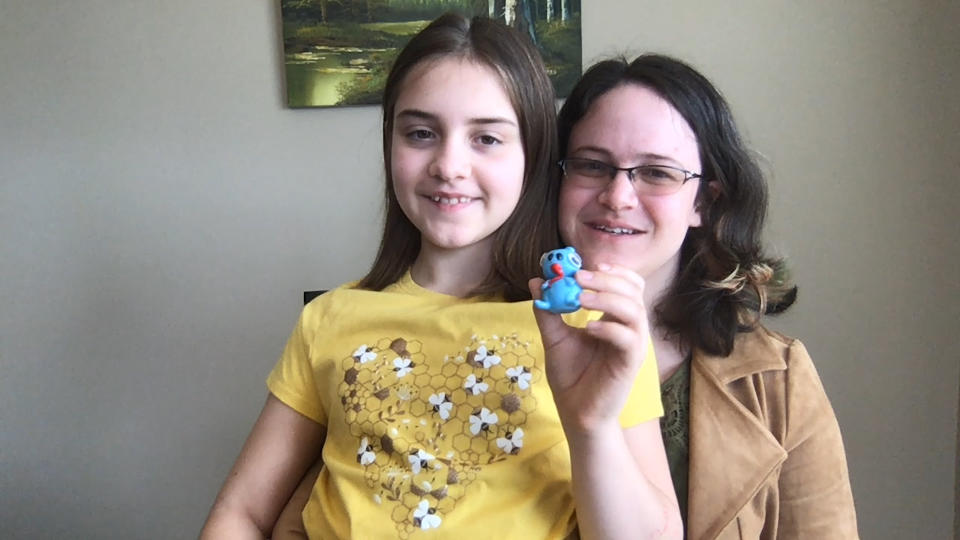World Autism Awareness Day: What it's like to have a loved one on the spectrum
Watch the full interviews with Cormac, Haley and Andrew in the video above
What do the actors Dan Aykroyd, Sir Anthony Hopkins and Daryl Hannah have in common with TV presenter Chris Packham and Britain’s Got Talent singer Susan Boyle?
Like an estimated 700,000 people in the UK, they were born with a lifelong disability that affects how they communicate and interact with the world: they are all on the autistic spectrum.
“Autism is a developmental disorder that affects a person’s communication, behaviour and other relationships to people and their environment,” says senior autism therapist Jennelle Olalo.
“The only known cause is genetic disposition but that’s not in every case and there may be environmental factors at play, too.
“It's a spectrum disorder, so they say that if you’ve met one person with autism, you’ve met one person with autism – because no one case really is the same as another.”
This Thursday marks the 13th World Autism Awareness Day, when charities and organisations encourage people to spread awareness and fundraise to help autistic people and their families.
According to the National Autistic Society, 60% of those on the spectrum believe most people don’t understand how autism can affect someone’s behaviour.
The challenges for both autistic people and their families are diverse and the issue is particularly relevant in the current COVID-19 crisis when routine – which many autistic people find important – is upturned.

“Some of the first challenges that parents face when it comes to having a child with autism are that their child is not talking, not playing with other children, not imitating,” says Olalo.
“Sometimes behaviours such as tantrums, repetitive behaviours such as flicking fingers in front of their faces or pacing and sometimes even self-injury can emerge, but that’s because the world can be a very scary place for children with autism and this is their way of coping.
“Parents can feel overwhelmed, and it can cause strain within families if siblings feel ignored or there’s strain between parents.
“It can even cause stress on a financial level as families try to find support and therapy. It can tear families apart and be very distressing.”
Cormac Byrne, whose 19-year-old daughter Robyn was diagnosed as autistic as a child, says his family were very anxious.
“As parents you worry about anything and everything and what’s going to happen so it was devastating news,” he says.
“Looking back, there were things we didn’t think we’d get through... but we did. You find you’re a lot more resilient than you think you are.”

Haley Thrapp, whose 10-year-old daughter Kira is also on the autistic spectrum, agrees: “Our challenges are so different. I have a lot of concerns such as what does adulthood look like and how do you teach someone executive function?
“A lot of people jump to the conclusion that the child with autism is just trying to get their way [when having a tantrum] but really a lot of times the child doesn’t want this.”
Andrew Owen is on the autistic spectrum himself, as is his eldest son, Aiden, aged seven.
“There are certain significant things that we can do better than others with our neuro-diverse brains but it also comes with significant penalties that others don’t have to deal with,” he says.
“For a lot of us, sometimes we don’t even understand what we’re doing ourselves emotionally and that can make it a very complex world to live in.

“Growing up, you have the social groups in school and I never really fitted into those moulds because of the different way that I saw the world around me.
“I don’t want to see a world like that for my son. But I have a great amount of hope for the future for Aiden.
“I have hope that he will have a much more gentle transition into teenage years and adulthood and that people will be more understanding.’
Therapist Olalo is also optimistic for the future.
“Luckily, autism has become part of the mainstream and there is a much more of a conversation about it than there was even 14 years ago when I started my therapy career,” she says.
“But society can help by spreading awareness by treating people with autism as equals. I have friends who are on the spectrum who make fantastically good friends, the best personalities and senses of humour so just be open to people with diverse abilities.”
The families could not agree more.
“There are some absolutely fantastic positives where Robyn will do something small and make us smile and make us so proud as parents,” says Byrne.
“She’s a wonderful human being, a wonderful individual and she adds to our lives immensely.”

 Yahoo News
Yahoo News 
